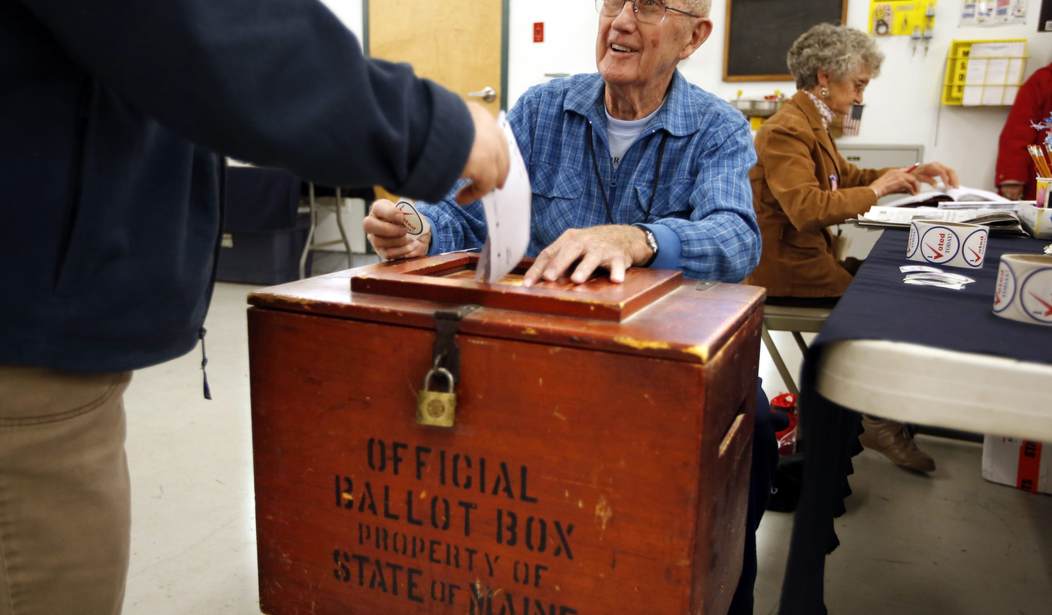Imagine this: The governor of your state won a close three-way election in 2010 with less than 38 percent of the vote, after telling a group of fishermen that the president of the United States could “go to hell.”
Before running for re-election four years later, the governor of your state said those in the NAACP questioning his absence from a Martin Luther King Jr. birthday event could “kiss my butt;” compared the IRS to the Holocaust, said a Democrat in the state’s legislature was a “bad person” with “no brains” and “a black heart,” and was overheard saying President Obama “hates white people.”
Now, imagine that politician wins re-election in 2014 even though, he again, captured less than 50 percent of the vote.
Or how about this?
Four candidates are on the ballot. You think one of the top two contenders is so goofy that even a bunch of clowns in a car wouldn’t give him a ride. The other leading candidate, you decide, is either a crook, an incompetent, a pathological liar, or all of the above.
There are two other candidates. But nobody’s ever heard of them and they seem to you like total losers.
So rather than wasting a vote on them, or flipping a coin between evil and evil, you just stay home with a hard pack and a bottle of Jack and wonder what the hell kind of a world your kids and grandkids are going to be left with.
Okay. You’re right. That could never happen.
But if it did — and happened often enough — you might vote the same way the people of Maine did Nov. 8 and choose a whole new way of voting: ranked-choice-voting.
As the Committee for Ranked Choice Voting explained RCV on its website, the new system will allow Maine voters to rank candidates from their favorite to their least favorite.
If there are three candidates on the ballot, Maine voters will cast a ballot for their first choice, their second choice, and their third choice.
Counting the ballots is a little trickier than the regular system used by the other 49 states.
“On Election Night, all the ballots are counted for voters’ first choices,” the Committee for Ranked Choice Voting site explained.
“If one candidate receives an outright majority, he or she wins. If no candidate receives a majority, the candidate with the fewest first choices is eliminated and voters who liked that candidate the best have their ballots instantly counted for their second choice. This process repeats and last-place candidates lose until one candidate reaches a majority and wins. Your vote counts for your second choice only if your first choice has been eliminated.”
A bit complicated, yes. But, RCV supporters argued it could lead to more civilized politics.
“Parties used to play the role of consolidating opinion and building big coalitions that could win elections, but it’s unrealistic to believe that they can reclaim that role,” the Editorial Board of the Portland Press Herald opined. “Under the current system, loud voices are noticed and the ability to bring people together undervalued.”
But detractors, like the Bangor Daily News editorial board, warned the new system, in a state where half the communities still count ballots by hand, would be viewed as overly complicated and confusing.
“We remain unconvinced that changing the way Maine residents vote will suddenly bring all these positive benefits,” the Daily News wrote,” just as term limits and public financing of campaigns have not dramatically altered the makeup of the Maine Legislature, how well it functions or the public’s perception of it.”
Jason McDaniel, an associate professor of political science at San Francisco State University, said RCV could be seen as so mind-boggling that many voters would just stay home.
“When voting is made more difficult,” McDaniels told Governing, “we should expect there to be some negative consequences with respect to ballot errors and voter participation, especially among those with less education, among certain racial minority groups who are less likely to participate, and among some portions of the elderly population.”
RCV is not perfect. Burlington, Vt., voters approved ranked-choice-voting but went back to the old way — the first one across the line wins — after they elected a mayor in 2009 that a lot of people didn’t like.
Well, that’s the way it goes, said David Kimball, a political scientist at the University of Missouri-St. Louis.
“Using the regular system,” he said, “there are plenty of cities that don’t like the mayor they got, either.”
However, the real problem with RCV in Maine could be both logistical and constitutional.
The Maine Constitution mandates all votes are collected locally. If one candidate wins a statewide majority, excellent, there is no problem.
But if the voting has to go to a second or third round, that’s a problem. All the ballots would have to go to the state capital, Augusta, for additional rounds of tabulations.
If several rounds are needed, the results of an election might not be known for weeks.
Maine Secretary of State Matthew Dunlap told the AP it was going to take several weeks of meetings to figure out how to make RCV work.
He wondered aloud if the 2018 RCV implementation date, as mandated by the voter-approved referendum, was too much of a stretch.
Kyle Bailey, the campaign manager of the Committee for Ranked Choice Voting, didn’t want to hear that kind of talk.
He said there could be no equivocation or wiggle room for the enactment of RCV.
“This is not a recommendation or an advisory opinion of the people,” Bailey said. “This was a statute enacted by the people of Maine.”









Join the conversation as a VIP Member